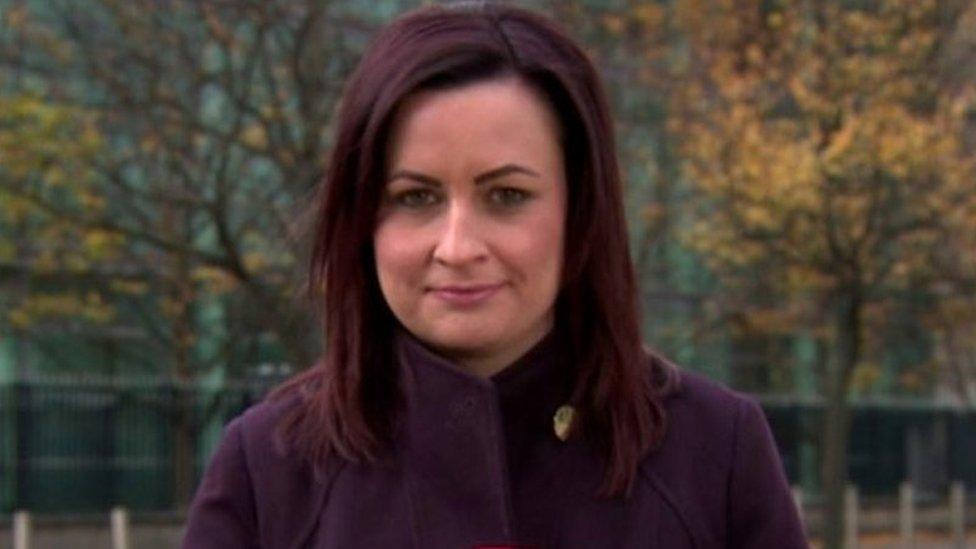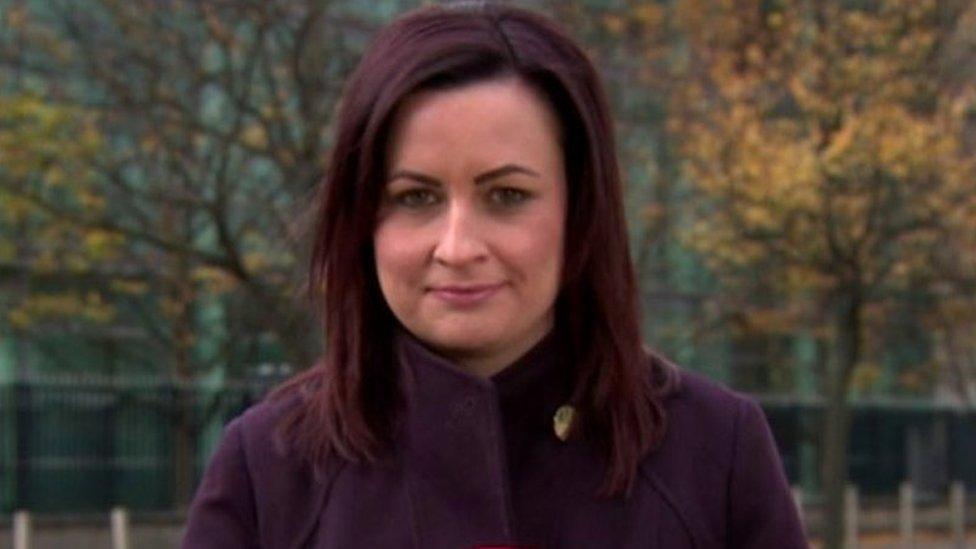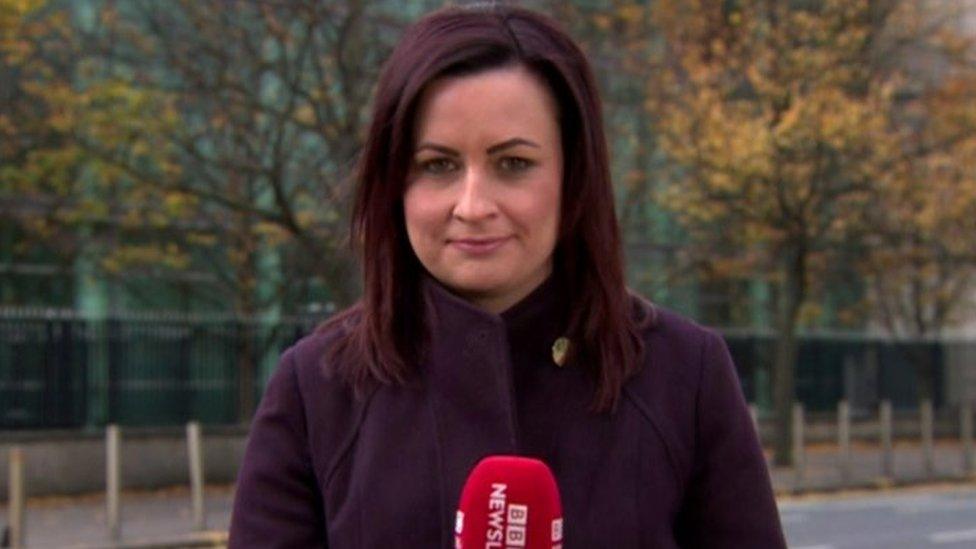Teenage boy sentenced after harassing BBC reporter Aileen Moynagh
- Published

Aileen Moynagh, who works for BBC News NI, was subjected to abusive and threatening messages for months
A teenage boy has been given a six-month deferred sentence and supervised probation for "harrowing" online harassment of a BBC reporter.
In September 2021, the 17-year-old admitted harassing BBC News NI's Aileen Moynagh over a five-month period.
The boy, who has a range of complex disorders, cannot be identified because of his age.
After the sentencing, Ms Moynagh said: "Today marks the end of a long and difficult journey."
"I've waited for this day and dreaded it in equal measure because, regardless of the outcome, there are no winners," she added.
The Dublin teenager appeared at the city's Children's Court on Thursday.
The court previously heard he had an "obsessive crush" on the Belfast-based journalist and was previously cautioned for similar approaches to RTÉ journalists.
The offences took place on dates between October 2020 and February last year.
The court heard the teenager had used up to 40 aliases on the internet and had been barred from Twitter about 150 times.
During Garda (Irish police) interviews, he admitted he had an obsessive compulsive interest in some female journalists.
'Difficult time'
Ms Moynagh began receiving unwanted messages on Twitter, Facebook and LinkedIn from the boy in October 2020, when he was 16 years old.
She tried to block him from contacting her but each time he set up a new account and email address under a different alias.
A judge described Ms Moynagh's victim impact statement as "harrowing", and he praised the generosity and compassion she showed during the proceedings.
He also referred to the boy's father, who had told the court he had spent years trying to get specialist help for his son.
He imposed a six-month sentence for the harassment offence.
However, he deferred activating the order pending a case review on 27 July.
After the hearing, Ms Moynagh released a personal statement saying she had lived with harassment and its repercussions for 16 months and the experience would "undoubtedly leave a lasting impact on my life".
"Abuse online should be taken seriously and have consequences for perpetrators hiding behind a mobile or a keyboard. Unfortunately, abuse of this nature doesn't always remain electronic." she added.
The journalist said there was a need to report and "speak out" about such issues, but she added that dealing with the harassment case had been a "lonely place".
"All organisations need to learn - including the BBC - how to better approach these situations from the outset. The BBC has accepted that its initial approach should have been better and is now actively working to put practices in place to help staff deal with harassment of this nature," Ms Moynagh said.
"This is very encouraging and I hope other organisations will follow its example."
In a separate statement, a BBC spokesperson said: "This has been a difficult time for Aileen and we pay tribute to how she has dealt with this situation, both professionally and personally.
"We want to ensure that BBC staff have all necessary support in dealing with harassment or abuse. It's a serious issue and we've been grateful for Aileen's feedback on what we can do to better support BBC staff in similar situations.
"Nobody should be harassed or abused because of their job."
Related topics
- Published14 December 2021

- Published15 September 2021
